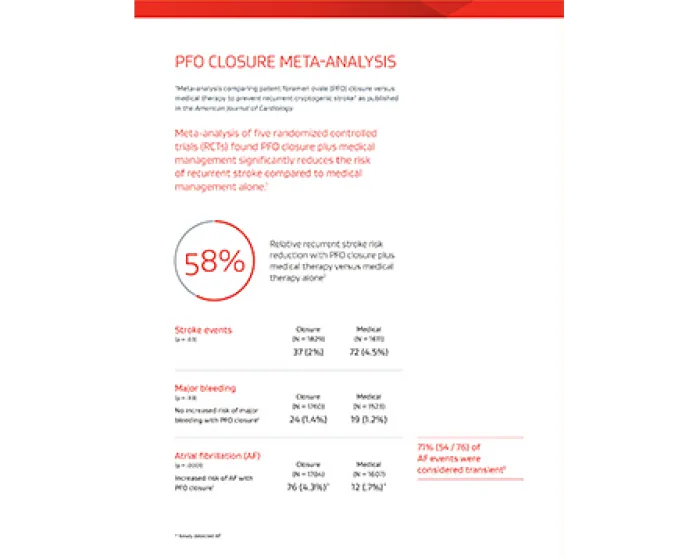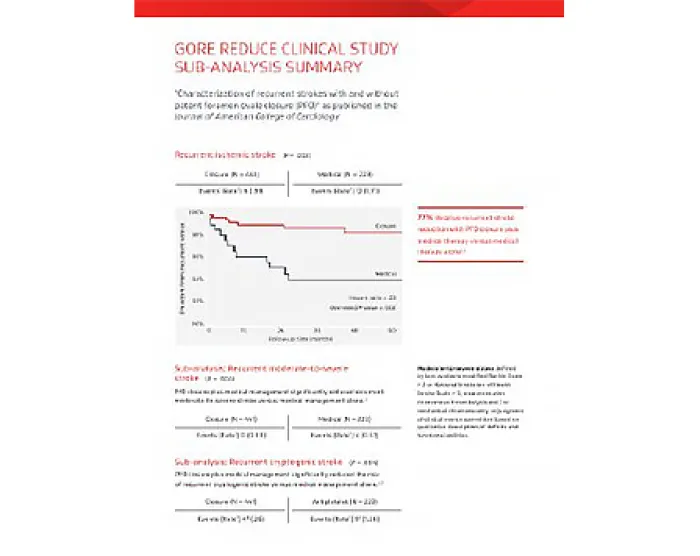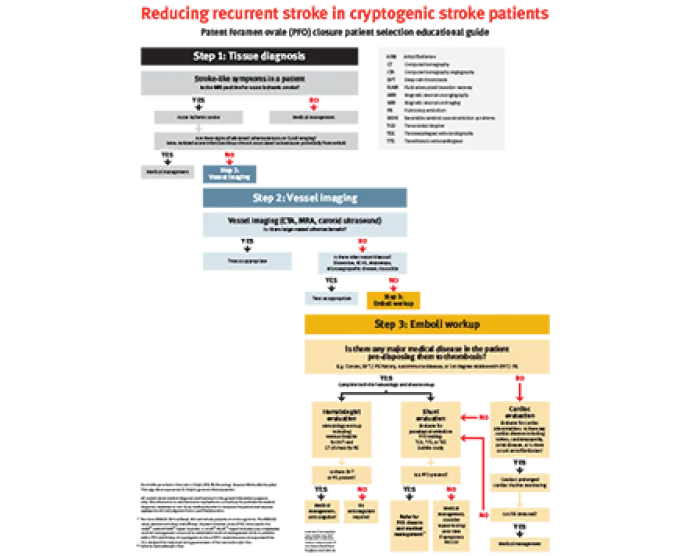GORE® CARDIOFORM Septal Occluder for PFO Closure Resources
Redefining STROKE PREVENTION

American Academy of Neurology PFO and Secondary Stroke Prevention Practice Advisory Update
Anticoagulation: Better treatment option than PFO closure or antiplatelet?
A review of the clinical evidence of anticoagulation in comparison to PFO closure and antiplatelet therapy to reduce recurrent stroke risk in cryptogenic stroke patients.
Gore REDUCE Clinical Study results
Learn about the efficacy and safety of PFO closure to reduce recurrent stroke.
The case for PFO closure: Preventing recurrent stroke in cryptogenic stroke patients
Understanding the right patient for PFO closure.
Is your stroke patient a candidate for PFO closure?
Learn key points to consider when evaluating cryptogenic stroke patients and how to utilize the RoPE score to determine if PFO closure should be considered.
Patient selection: RoPE score for PFO closure patient selection
Learn how to use the RoPE Score to determine PFO attributable risk.
PFO closure patient selection: Should PFO size influence your patient management decision?
A clinical evidence review of PFO size/morphology in the reduction in recurrent stroke.
PFO panel discussion: AFIB and cardiac monitoring
A panel discussion: Are there biomarkers of occult AFIB? Is Apple Watch the future for cardiac monitoring? AFIB and ESUS - do you close?
Do PFO characteristics determine recurrent stroke risk?
Learn about the evidence available on the effects of PFO size/morphology in the reduction in recurrent stroke.
PFO and stroke workup: Steps to determine etiology of ischemic stroke
Learn about a three-step process for evaluation of stroke – tissue, vessel and embolic.
Case study: To close or not to close? 52-year-old female
See what factors were considered to determine if a patient was right for PFO closure.
PFO detection: What's the gold standard - TCD, TTE or TEE?
A review and comparison of the different methods used to detect a PFO.
Case study: To close or not to close? 70-year-old male
See what factors were considered to determine if patient was right for PFO closure.
PFO and stroke patient education video
Use this video to show your patients how a blood clot can pass through a PFO and potentially cause a stroke.
Talking to your patient about PFO and stroke
Clarify how a PFO can contribute to a stroke and what your patient can expect with PFO closure.

Refer to the Instructions for Use for a complete list of warnings, precautions, contraindications, potential adverse events and patient-specific information.
This information is intended for education and awareness only. Patients should consult their physician for information on the risks associated with the devices and surgical procedures discussed in this website. All surgical procedures carry potential health risks. Not all patients will be candidates for treatment with these devices, and individual outcomes may vary.
Always follow physician advice on your post-surgery care and recovery.
Caution: U.S. law restricts use of this device on the order of a physician (Rx).
APPLE is a trademark of Apple, Inc.





